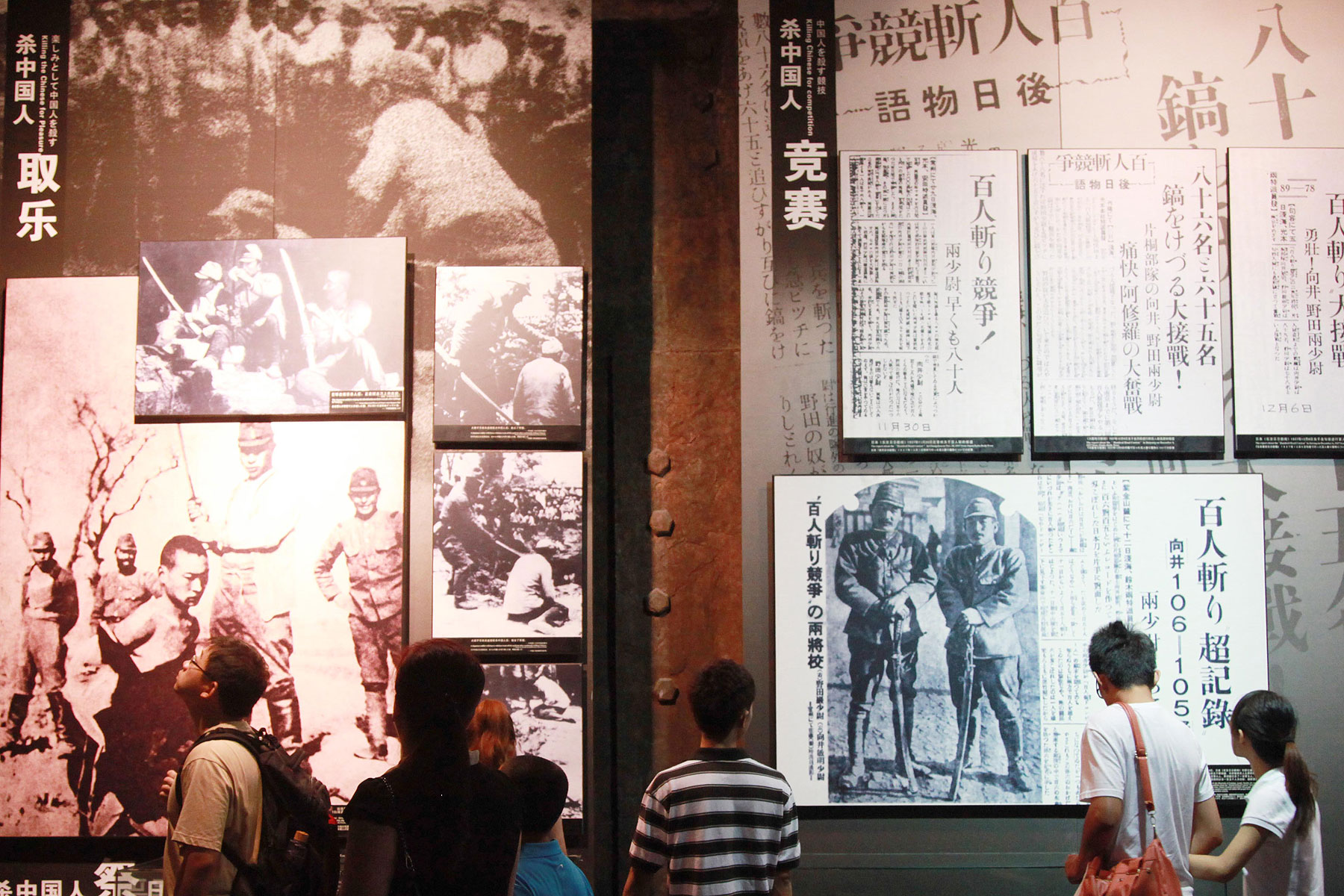
Just when you thought the battle over Japan’s wartime history couldn’t get any weirder, a best-selling author was forced to issue a denial about a previous denial — in his own book – that Japanese troops had committed one of the worst atrocities of World War II. That is, he said, they didn’t.
Henry Scott Stokes, a leading Western journalist and longtime defender of Japan’s right wing, told Kyodo News Service last week that he was unaware that the Japanese-language version of his book includes an assertion that the infamous 1937 “Nanking Massacre” had never occurred.
He called that assertion “straightforward right-wing propaganda.”
The book, whose title translates as “Falsehoods of the Allied Nations’ Victorious View of History, as Seen by a British Journalist,” has sold more than 100,000 copies since it went on sale in December.
It comes amid a boom in publications that cater to right-wing views in Japan as well as nasty historical disputes with Asian neighbors. It was released only in Japanese.
Stokes, 75, is a former correspondent and Tokyo bureau chief for the New York Times, Financial Times and Times of London.
Although the book presents a largely – if not overwhelmingly — sanitized view of Japan’s wartime conduct, Stokes, who said in recent interviews he does not read or write Japanese, told Kyodo that the Nanking denial had been inserted in the translated version of his book without his knowledge.
Late Friday, he sharply reversed course.
In a carefully worded joint statement with publisher Shodensha, Stokes, who suffers from advanced Parkinson’s disease, said there is no disagreement.
“The author’s opinion is: The so-called ‘Nanking Massacre’ never took place. The word ‘Massacre’ is not right to indicate what happened,” the statement said.
In an interview last month, Stokes had said “ghastly events” had occurred at Nanking, but that the Japanese were not alone responsible.
Stokes has long been a darling of Japan’s right wing. He moved to Tokyo from London in 1964 and served as bureau chief for major U.S. and British newspapers in the 1960s and ‘70s. He published a well-received biography of nationalist icon Yukio Mishima in 1974 and remains on friendly terms with conservative leaders and activists.
Because his illness makes it difficult to write or type, his “Falsehoods” book was based on more than 170 hours of taped interviews. Written essay-style, the book was assembled from those interviews by Hiroyuki Fujita, a translator closely associated with conservative causes.
Stokes said in a recent interview that he had not read the finished book. He told Kyodo that he was unaware of the apparent turbulence concerning Nanking until Kyodo brought to his attention.
Fujita said the controversy centered around just two lines in the 250-page book. Fujita said that after discussions with Stokes and Shodensha officials it was jointly decided that no changes were necessary.
“What Henry has in mind and what is written in Japanese in his best-seller book have the common implication behind them: We should not say ‘Nanking Massacre’ to understand what really happened in Nanking,” Fujita said in a written statement.
Still, not everyone is convinced that the book accurately portrays Stokes’ views.
A Tokyo journalist hired to transcribe the taped interviews for a potential English-language edition said she quit in protest. She said she became convinced that the interviews had been taken out of context.
“I felt that what you said in the transcripts was completely different on important points from what is written in your book,” transcriber Angela Erika Kubo wrote in a May 4 email to Stokes.
Although estimates vary for the number of victims, mainstream historians agree that many tens of thousands of civilians were killed by marauding Japanese troops in Nanking over a six-week period beginning in December 1937.
Stokes’ association with leading Western news organizations – he is now a freelance writer — undoubtedly appealed to his publishers and helped give the book mass-market appeal, said Jeff Kingston, a professor of Asian Studies at Temple University’s campus in Tokyo.
“They knew that he bestowed a credibility that they would never have on their own. They would be dismissed as right-wing crackpots, while Henry Scott Stokes has a rich pedigree,” Kingston said.
Sven Saaler, an associate professor of Japanese history at Tokyo’s Sophia University, said the controversy is not surprising. Nor do the brisk sales necessarily mean that right-wing views have broad appeal in Japan.
“These kind of publications have always been around, and always have been selling a few ten-thousand copies to a certain audience. But the revisionist views of history have yet to reach a broader segment of society. The revisionist views are deeply rooted in parts of the Japanese elite, particularly in the political class, so there is a gap between historical views,” Saaler said.
Lucy Birmingham, president of the Foreign Correspondents Club of Japan, said the foreign press corps in Japan has come under increasing attack from conservative news media for alleged anti-Japanese bias in recent years, and pressure to toe the line is likely to continue.
“It’s difficult to know exactly what Henry Scott Stokes’ views are. He has been quoted as saying diametrically different things in different publications,” says Birmingham, a freelance writer who has written for TIME and other publications.
“Foreign journalists in Japan are in the crossfire. It’s coming from a small, but loud minority of right-wing writers and publishers who are testing the media waters on their extreme views … It’s the attitude, ‘If you’re not with us, you’re against us.'”
More Must-Reads from TIME
- Donald Trump Is TIME's 2024 Person of the Year
- Why We Chose Trump as Person of the Year
- Is Intermittent Fasting Good or Bad for You?
- The 100 Must-Read Books of 2024
- The 20 Best Christmas TV Episodes
- Column: If Optimism Feels Ridiculous Now, Try Hope
- The Future of Climate Action Is Trade Policy
- Merle Bombardieri Is Helping People Make the Baby Decision
Contact us at letters@time.com